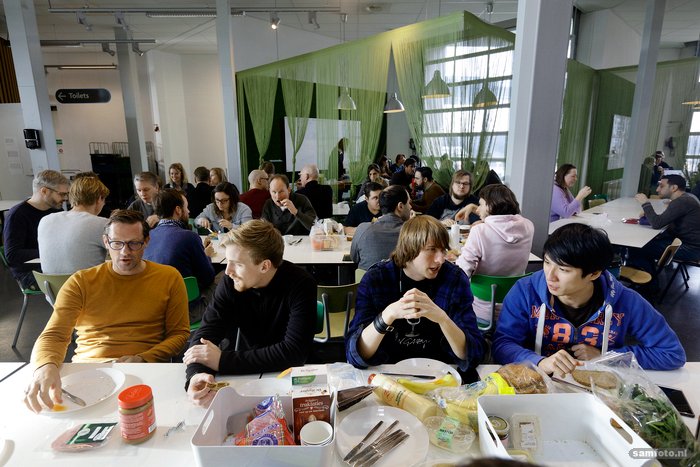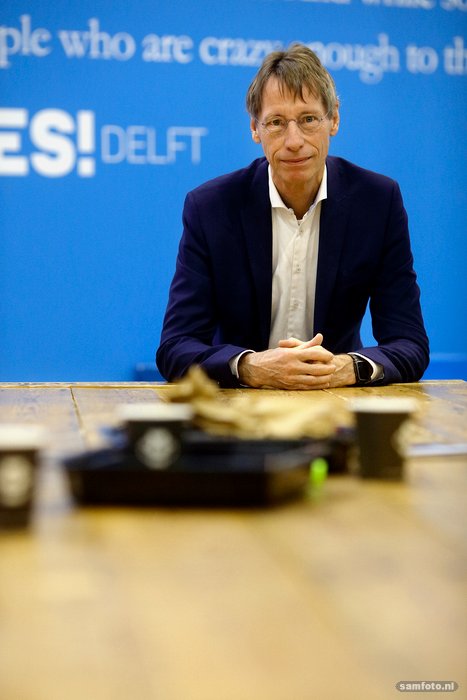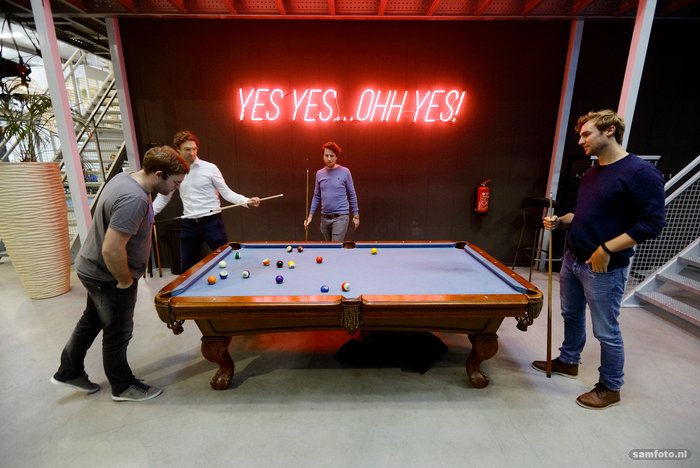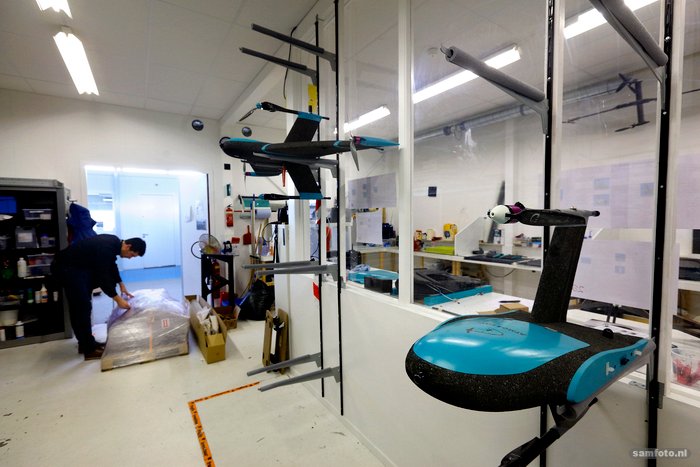The magic of YES!Delft
YES!Delft, one of the five best university incubators in the world, is just a stone’s throw away from campus. So, what makes it so special? Delft Outlook takes a look.
Duke Urbanik arrives with a broad grin on his face. The entrepreneur in residence has been a mentor for Europe's biggest technological incubator for over a decade. “We’re actually in the world top five [ranked second-best World University Business Incubator in the UBI index, Ed.), but, if you ask me, we’re number one”, he announces proudly.
Urbanik is our guide for the day. We walk past a wall with company logos of all the start-ups given a place in the incubator. It is an illustration of YES!Delft’s success, because they are already onto their second Wall of Fame. “In the early years, we were delighted to be able to welcome twenty start-ups in a year, we now have over a hundred applications every two months”, says
Urbanik, explaining the number of logos. On the old wall, we can see the logos of familiar start-ups like NightBalance and Senz, and on the new one, we recognise ParkBee and Aanmelder.nl.
1170 MEETINGS
The enthusiastic Urbanik strides his way through the incubator. In a large foyer, he suddenly places his hand on one of the long wooden tables. “It was here that I first met the boys from Swapfiets. I still see them here. Three students with an amazingly good concept, but hardly any idea of how to make it into a successful company. You even see their blue cycle tyres in Germany and Denmark now.” Urbanik can remember, because he keeps a record of everything in a spreadsheet. He has had 1,170 meetings with entrepreneurs since he started. Young, old, prearranged or spontaneous.
“It's amazing how often people report to reception with ‘a fantastic idea’. It's sometimes like a playground, but we always listen.” One man turned up at the desk who had come up with an idea that could support people with autism in carrying out day-to-day tasks. Not suitable for YES!Delft, but Urbanik recognised the potential and linked him up with some potential investors. “Years later, I heard that he’d successfully marketed the product. Isn't that fantastic?”
VALIDATION PROCESS
It’s an exception, because start-ups normally undergo an extensive selection procedure. Urbanik: “Every two months, we select about twenty start-ups from over 100 applications. We then conduct interviews before selecting ten to go through validation.” During this ten-week process, the entrepreneurs find out if their idea is marketable. That leaves around four companies that go onto the next phase. After that, around half drop out, according to Urbanik. “Ultimately, YES!Delft gets on average two new companies every two months. But even the incubator cannot guarantee success. According to CBS Insights, nine out of ten start-ups fail worldwide, even after receiving funding.”
NEON SIGN
There’s little time to let these figures sink in. While Urbanik chats to Rogier Bartens, CEO of Laevo, our attention is distracted by the pink neon sign above the pool table. ‘YES YES, OHH YES!", it says. “Not everyone was pleased about that”, points out Urbanik. “Don’t you recognise the quote? Look it up, then you’ll see what I mean”, he grins. We walk on, towards the aroma of fresh coffee and boiled eggs. It’s lunchtime and the whole of YES!Delft comes together in the canteen, where Ruby Hitzert holds sway.
“Ruby arrived here with an idea for a catering company and she now runs this place. Fantastic, isn’t it?” Urbanik waves to her. “All for down-to-earth prices, it’s a reason for people to get out of the office. It gets them talking to each other.” Obviously a successful formula, because there’s hardly a seat free at the picnic tables.
GIVING BACK
We leave the busy canteen and go upstairs. Urbanik hangs over the banister. “Can’t you just feel the energy?”, he asks. We nod. “That’s why I do this job. I’m not paid for it, but it’s my way of giving something back to the community.” He spent years working with his IT company in the United States, where giving back ‘was taken for granted’. “In the Netherlands, it’s different, the business model always comes first. It’s a shame.”
Before our tour ends, he has one more room to show us: the arena. In the place where ideas are presented and investments secured, Urbanik points out that the start-up world has changed significantly, even within YES!Delft. “The trick is to stick with the key factor, entrepreneurship. Even though we are Europe’s top incubator and possibly even the world's. Together with the university, we have to ensure that we don’t lose our identity and that start-ups never become a product. That’s quite a challenge”, he says firmly.
YES!Delft
Founded in 2005 by TU Delft, the Municipality of Delft and TNO, YES!Delft helps students, professionals and scientists to set up their own tech companies. Start-ups are given comprehensive support in the form of programmes, services such as recruitment and financing, and access to a community of experts, business partners and mentors. In fifteen years, YES!Delft has become one of the world’s largest university incubators.
Every two months, we select about twenty start-ups from over 100 applications



